By Jennifer Gabriel
From the moment Norma Helsper moved into the Hospicare residence, staff knew they were greeting someone special. Phones rang off the hook with dozens of friends asking about visitor restrictions, and whether it would be okay to drop off flowers or her favorite custard. “Norma’s got spunk and you’re going to love having her there,” one caller told me.
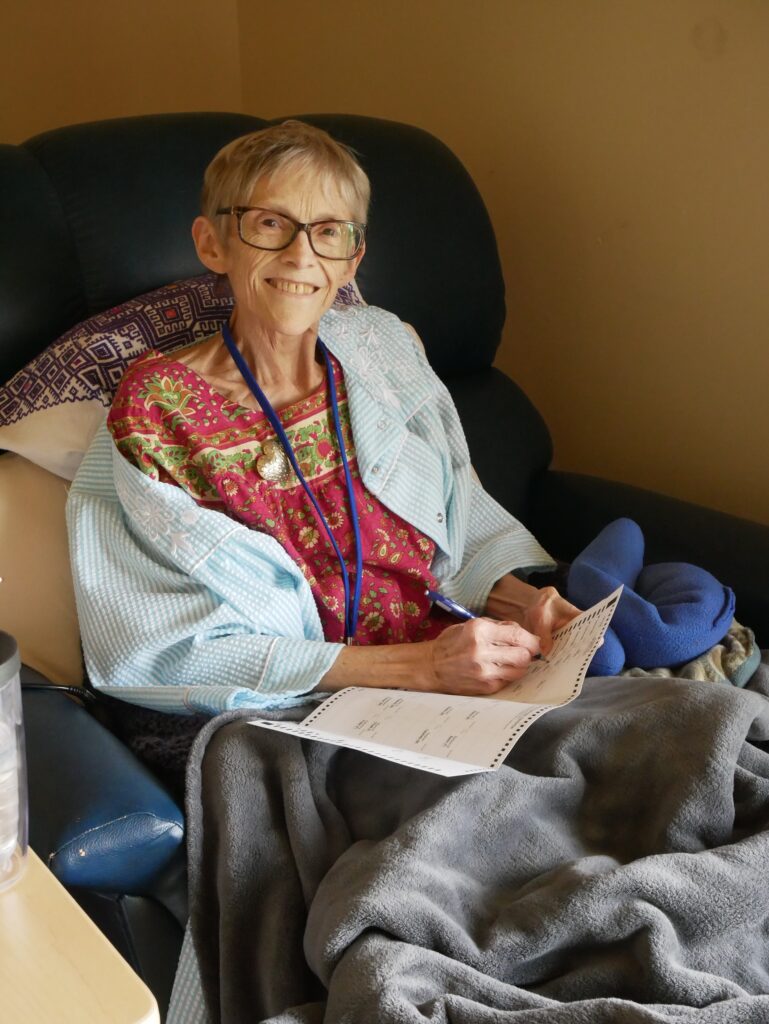
So maybe I shouldn’t have been surprised when I walked into her room for the first time.
Norma is perched in her recliner, carefully studying her absentee ballot for the New York primary election.
“You’re voting!” I say.
“Of course I’m voting!” she exclaims. “Of COURSE! This is an important year. Too important to miss.”
Norma folds her ballot and places it on her table, as I settle onto the edge of her bed. Norma’s mom is sitting across from us, answering a cell phone that never stops ringing. Because of Hospicare’s COVID-19 restrictions allowing only one visitor in the room at a time, Norma’s sister sits outside, waiting for her turn.
“It’s awful,” Norma says when I asked about her experience in facing end-of-life in a pandemic. “This makes it so hard for me to see my friends, though I’m grateful that one can be here at a time. I know that’s not true in so many other places.”
Thirty-three years ago, Norma moved from her childhood hometown outside Chicago to the Finger Lakes. She had accepted her dream job in the Spanish department at SUNY-Cortland, where she quickly became close with her colleagues. The tight-knit group of friends are many of Norma’s callers and visitors these days, and they show up in ways both big and small. Luscious bouquets of flowers fill every surface in Norma’s room, and greeting cards cover her bulletin board.
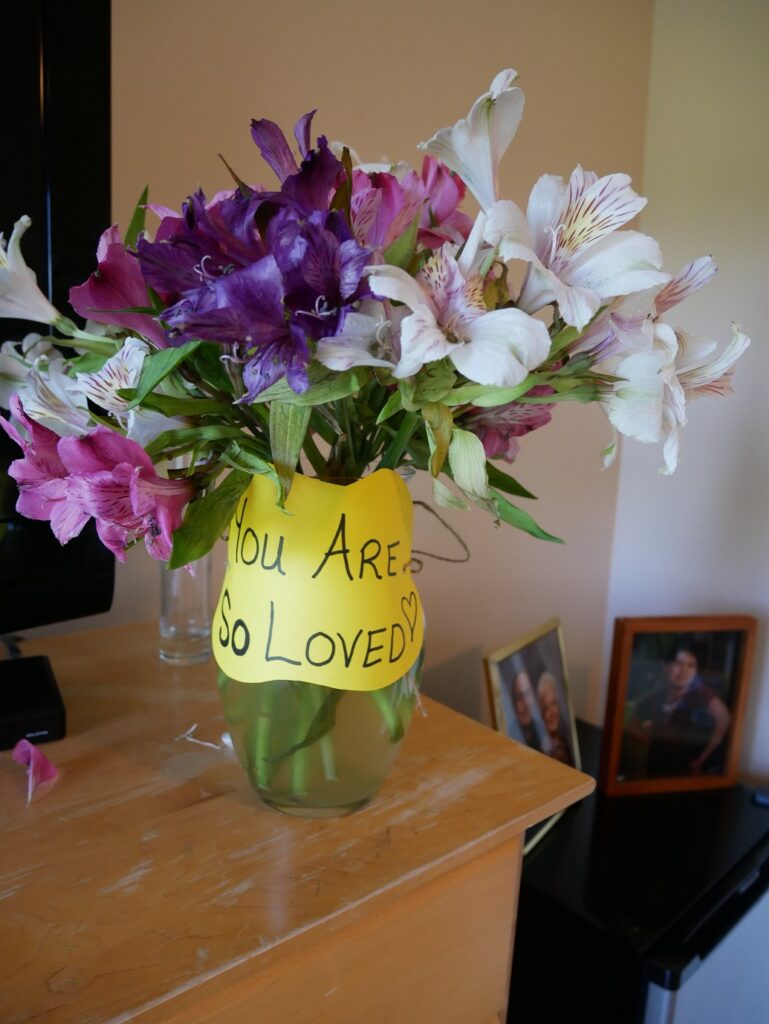
As we chat, Norma points to a wilted flower arrangement on a table behind me, and kindly asks if I can remove it. No sooner is it gone and she is back on the phone. “Good news!” she tells a friend. “There’s room for more flowers! Bring some anytime!”
Norma and her husband first settled in Cortland, and eventually moved to Ithaca, where they bought a home in Fall Creek. “Oh wow — the Halloweens in Fall Creek!” she chuckles, referring to the hundreds and hundreds of families that flock to the neighborhood every year for candy and community. “That night is something, isn’t it?”
Norma is easy to talk to and quick to crack a smile, so I understand why people gravitate towards her. One of those people – a friend named Mary — is the reason Norma came to know about Hospicare.
“Mary was a wonderful, wonderful friend,” Norma explains. “One day, she called me up and said, ‘Norma, there’s no easy way to say this: I have lung cancer’.”
Eventually, Mary moved into the Hospicare residence.
“I remember it was room 3 because that one has the larger deck,” Norma recalls. “And one day we had a little soiree there with a whole bunch of friends. We really had the nicest afternoon. It was such a nice moment, and a truly great memory of Hospicare.”
In the years that followed, Norma continued to support Hospicare, raising money for the agency as a swimmer for Women Swimmin’ for Hospicare.
Surgery and treatments kept Norma’s ovarian cancer at bay for several years, but this spring, it became obvious that Hospicare is where she needs to be. “The people that take care of us are amazing,” she says. “The rooms are comfy. The birds are beautiful. The grounds are beautiful.”
Norma’s days are filled with friends calling her phone, trips through the Hospicare’s gardens, and visits with her good friends from SUNY-Cortland and her church, the First Unitarian Society of Ithaca.
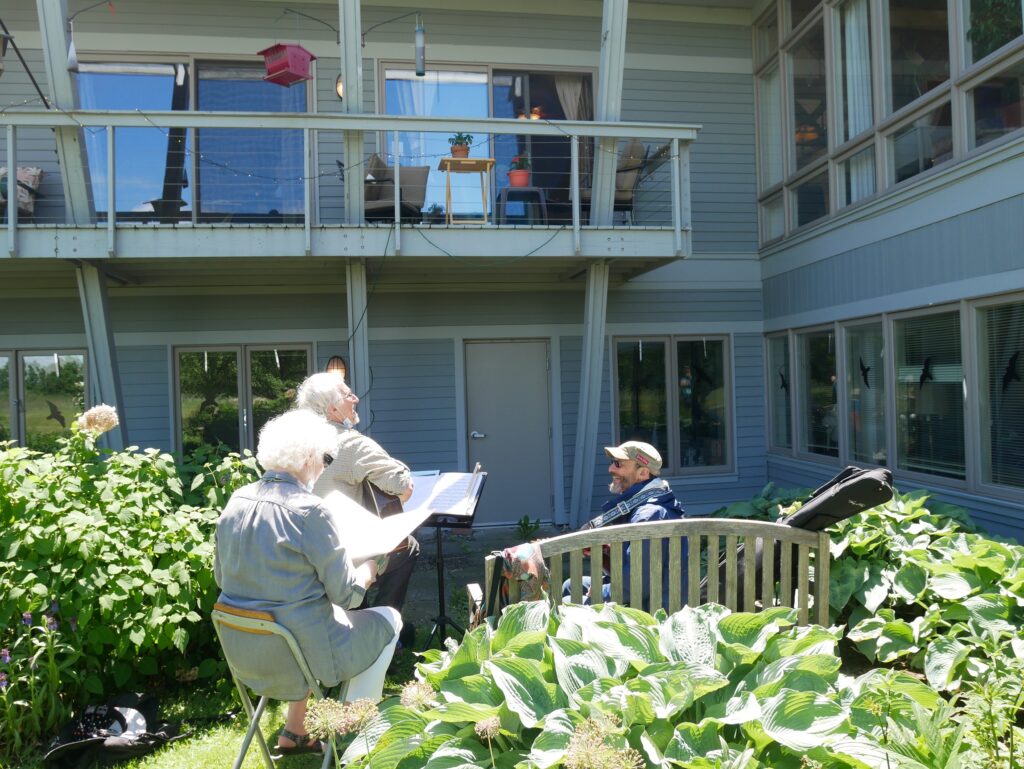
Twice now, three of her talented friends have come by to play music for Norma to enjoy – since they aren’t able to be in the residence together, they pull up a picnic table and sing to her from below her porch window.
That’s also where the minister from the Unitarian Church planted 16 colorful flamingos in the grass, to give Norma a laugh.
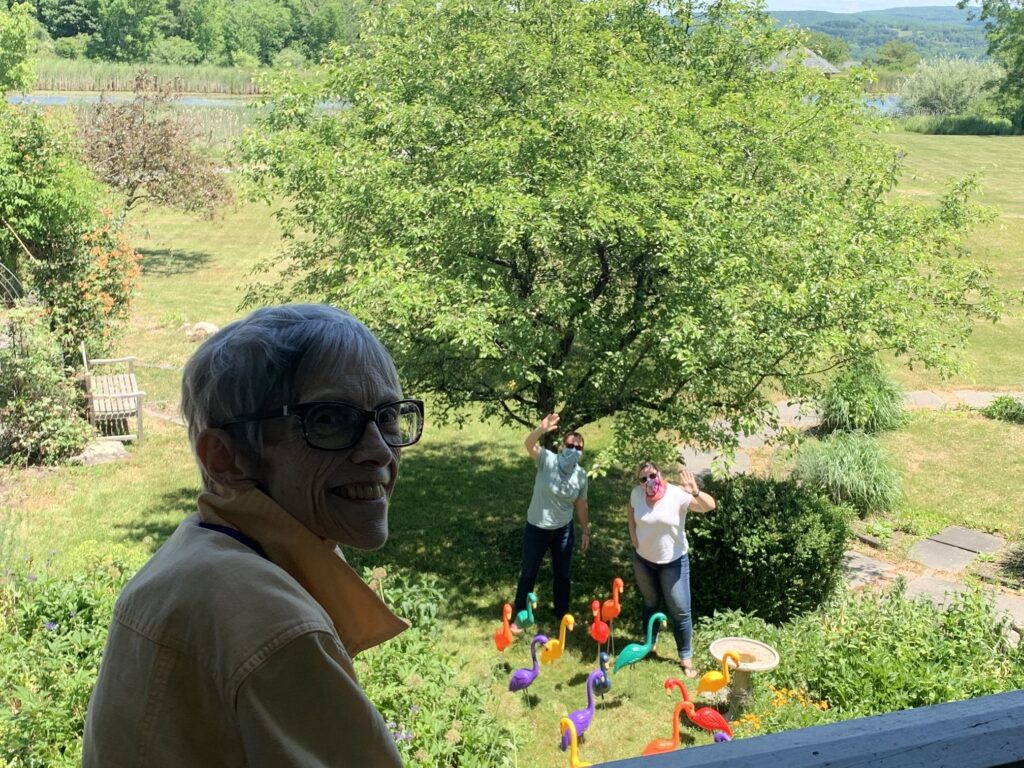
Norma remains upbeat, but this hasn’t been an easy road. Norma’s husband needs round-the-clock care and lives in a nursing home. The couple has not been able to get together, not even virtually, since he doesn’t know how to work the technology. “It’s very hard,” Norma tells me. “It’s what we both had to do and it was the right decision. I know that. But it’s still hard.”
Norma’s only daughter lives in a group home some 45 miles away. Restrictions there mean no residents are allowed to leave – the staff made a special exception for Norma, so she was able to see her once so far. But of course, that’s not enough.
And then there’s her 92-year old mother, Betty, who traveled from the Chicago area to be with her daughter for a week. She hopes to return soon, but traveling is difficult at her age, and she isn’t sure when she’ll be able to make the trip.
I ask if I can take a photo of them together. “Of course,” Norma says with a smile. Betty is a little more reluctant, quietly admitting that she hadn’t taken a single photo of Norma since she moved to Hospicare.
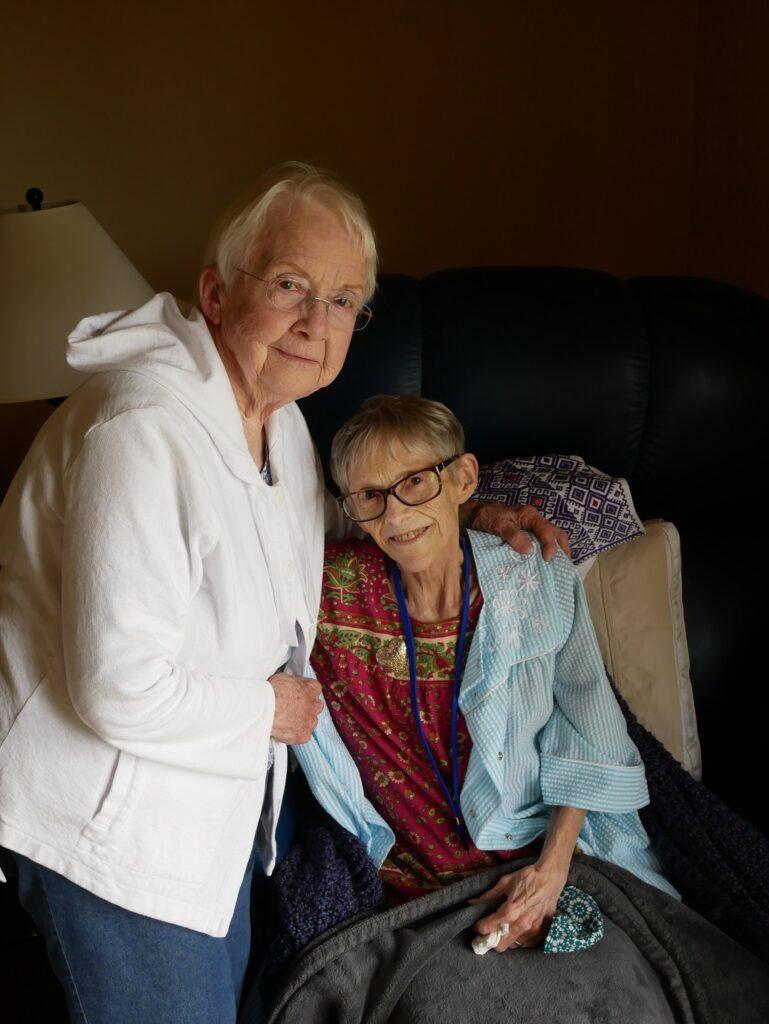
Betty pulls out her phone and swipes to find a picture from last fall, when Norma’s cheeks were full and her body stronger. “Isn’t she beautiful? Just so beautiful.”
Norma encourages her mom to take the photo with her, and Betty moves carefully to Norma’s side.
“This isn’t what is supposed to happen,” Betty says to Norma, once the photo has been taken and she’s settling back into her chair. “I’m supposed to go before you.”
Her voice quivers. “This really isn’t what is supposed to happen. It’s just not.”
“I know, sweetheart,” Norma replies softly.
They lock eyes.
“I know.”